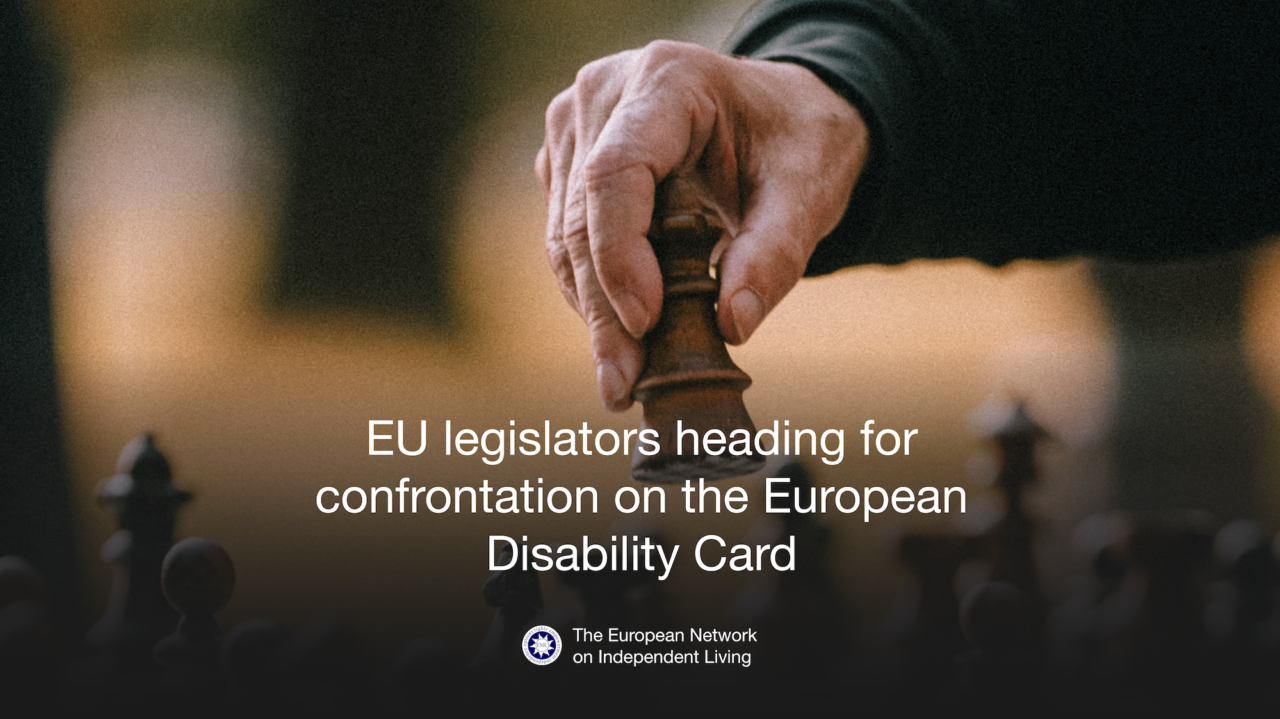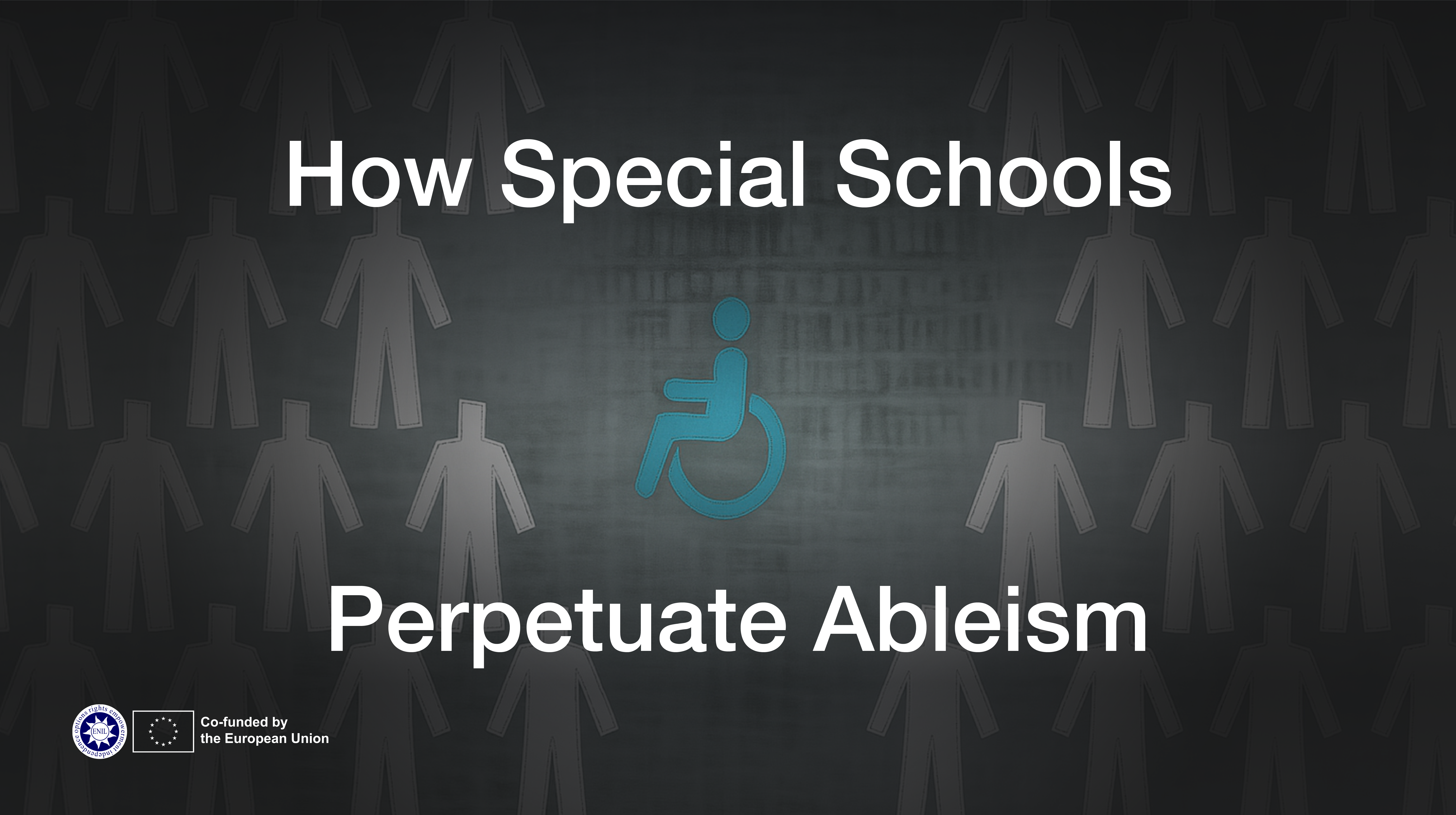Yesterday the EMPL committee of the European Parliament decided to support the disability movement on two key issues concerning the European Disability Card. Since the EU Council is resolved to oppose Parliaments´ position, we will see intense negotiations during the trialogues.
By Florian Sanden, florian.sanden@enil.eu
The European Union is currently discussing a directive which would create a European Disability Card and reform the European Parking Card. Often providers of services, activities or facilities offer special conditions or preferential treatment to people with impairments when they are officially recognised as disabled. At the moment, abroad people who are recognised as disabled in another EU country are not legally entitled to receive the same benefits when staying abroad. In theory, disabled people are allowed to use parking spaces designated for use by people with mobility, when driving to other countries since there is a European Parking Card. This card, however, is ineffective since Member States issue the Card according to their own rules and there is no mutual recognition. Using a parking space reserved for people with mobility impairments, creates a risk of receiving a fine, despite having a European Parking Card. For many disabled people, access to services, activities and facilities and finding a parking spot are pre-conditions for being able to travel. Such inequalities infringe on the right of disabled people to move freely within the EU and thus constitutes discrimination.
In September 2023, the European Commission proposed a directive which would establish a European Disability Card and a European Parking Card. The Disability Card would grant disabled people from another EU country access to the same preferential conditions and treatments, disabled people from the same country are entitled too. “Examples of special conditions or preferential treatment include free access, reduced tariffs, reduced fees or user charges for toll roads/bridges/tunnels, priority access, designated seats in parks and other public areas, accessible seating in cultural or public events.” The Parking Card would follow uniform standards across the Union and clarify that all EU countries have to recognise it.
Also in September 2023, ENIL published a statement specifically welcoming four elements of the card. First of all, the proposed equal access to special conditions or preferential treatments and parking spaces will make it easier for disabled people to travel and thus reduce barriers and discrimination. Second, the Cards imply a compulsory, mutual recognition of disability status between Member States which is an important step in the right direction. Third, accepting the European Disability Card will be compulsory for providers of services, activities and facilities. During the pilot project which run from 2016 to 2018 in eight Member States, this was not the case, leading to a very limited usefulness of the Card. Fourth, the Commission proposal foresees the creation of a uniform European Parking Card to ensure mutual recognition. At the same time, ENIL voiced a major concern. Probably the most important obstacle for disabled people to enjoy their right to move between EU countries, is not access to minor mainstream services but to key disability services such as personal assistance our housing support. In its proposal, the Commission made clear that the topic of social services will not be touched. With this stance, there can not be true progress in ensuring true access to the freedom of movement.
In November 2018, ENIL produced amendments to the Commission proposal and argued for two important changes. First, we proposed to install a strong element of participatory decision making within the directive by arguing for the implementation working according to the concept of co-production. Co-production is defined as “a relationship where professionals and citizens share power to design, plan and deliver support together…”. Second, ENIL supported a proposal by EDF to widen the scope of the directive to include access to social services and social assistance by inserting an exception into the directive. According to the proposal, “exceptions shall be made by Member States…when a European Disability Card holder moves to the Member State with a work contract or enrolment in an education institution until their disability is re-assessed by the national system or when a European Disability Card holder participates in an EU mobility programme”. This proposal would facilitate access to the services disabled people require and solve one of the key barriers to the freedom of movement.
ENIL forwarded its statement and amendments to various Members of the European Parliament and discussed them with MEP Katrin Langensiepen.
On the 23rd of November the EU Council published its General Approach to the European Disability and Parking Cards formulating its position. The EU Council rejects all notions of widening the scope of the directive or including a participatory component.
On the 11th of January the EMPL Committee adopted its draft report on the European Disability Card and a European Parking Card in a unanimous vote. Provided the plenary of the EP supports the report, which is basically certain, the Parliament will have completed its position. The draft report can be considered to be supportive of our proposals.
The EMPL Committee supports the view that disabled people should play a role in implementing the directive. According to amendment 53, pertaining to article 11, “before adopting a delegate act, the Commission shall consult experts designated by each Member State…as well as persons with disabilities and their representative organisations.” The ENIL proposal read“Delegated acts shall be produced in co-production with disabled people and their representative organisations. If the disabled people involved do not do this work in a professional capacity at a disabled people´s organization, a monetary compensation shall be provided.” Amendment 54, pertaining to article 12 states: “The Commission shall be assisted by a committee and shall meaningfully involve representative organisations of persons with disabilities”. The ENIL amendment read: “The Commission shall be assisted by a committee. The Commission shall involve an adequate number of disabled people and their representative organisations and engage in a co-production process.” It is good that the Parliament supports a greater involvement of disabled people and their representative organisations in decision making roles. It is unfortunate that it rejects a co-production approach, at least at this point. Without a well implemented co-production approach, participation of disabled people is at risk of being tokenistic. Only true power sharing can bring real participation.
The EMPL Committee decided to completely support the proposal to widen the scope of the directive to allow for temporary access of disabled people who have a work contract in the EU country they intend to move to, to disability specific services such as personal assistance. The text reads “Paragraph 2 shall exceptionally not apply in the following time-limited situations in order to ensure equal treatment and equal opportunities between national and other Union citizens with disabilities: where European Disability Card holders move to another Member State to engage in an employment contract or enroll in an educational institution until such time as their disability status is reassessed and formally recognised by the competent authorities in the other Member Stat or where a European Disability Card holder participates in an EU mobility programme”. The EDF proposal stated: “Exceptions to paragraph 2 shall be made by Member States to ensure equal treatment and opportunities between national and other Europeans with disabilities: “a) when a European Disability Card holder moves to the Member State with to a work contract or enrolment in an education institution until their disability is re-assessed in the national system, or b) when a European Disability Card holder participates in an EU Mobility Programme.”
To arrive at a final directive, the European Parliament and the EU Council have to find a joint legislative text. Since the European Commission participates, those negotiations are called trialogues. When it comes to the European Disability Card, the European Parliament and the EU Council hold different positions on two key issues. It will be interesting to see if the Parliament can convince the national governments to change their mind.



